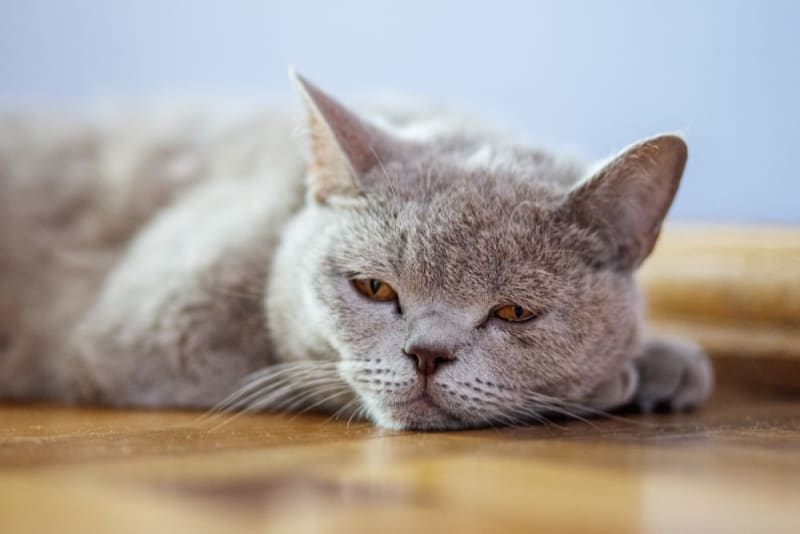This is a slow degenerative disease, which is very common in cats. The functional units, nephrons, of the kidney are slowly shutting down. Depending on what stage your cat is in will depend on what signs they show and what treatment is recommended.
Early diagnosis is key as it provides the greatest opportunity to limit damage to the kidney and prolong life.
Basic Monitoring
Your cat will now be recommended to visit the vet every 3-6 months. At your vet visit a blood sample will be taken. The blood test allows us to measure the amount of waste products (urea and creatinine) that are in the blood. These waste products are excreted by the kidney. So the level to which they are building up in the blood allows us to measure kidney function.
Blood Pressure
At your visits to the vet, your vet will take your cat’s blood pressure. It is very important to monitor your cat’s blood pressure because chronic kidney disease can cause high blood pressure. High blood pressure can further damage the kidney but can also lead to blood noses and blindness. If high blood pressure is detected then they will be recommended medication.
Urine Testing
The urine test checks for protein in the urine. A healthy kidney should not excrete any protein so protein excretion only happens if the kidney is starting to become damaged. It is important to limit this as protein excretion can further damage the kidneys. If your cat is diagnosed with protein in the urine then they will be prescribed medication.
Renal Diet
Renal diets are the most effective treatment in for chronic kidney disease. It has been shown that their use extends life by approximately 10 – 13 months. These diets are complex. The factors that make up a renal diet are: reduced protein, phosphorus and sodium; increased caloric density; neutral effect on acid base balance and added b vitamins and omega 3. Two main renal diets are Royal Canin Renal and Hills k/d. Alternatively a home cooked diet can be formulated.
Phosphorus & Potassium
Cats with chronic kidney disease are prone to developing electrolyte imbalances. They are likely to develop high phosphorus and low potassium. Feeding a renal diet helps to reduce the risk of this but it can still occur. The blood tests your veterinarian will perform regularly will test the levels of these electrolytes. If abnormalities are detected medications will be prescribed.
Nausea
Nausea can cause a number of symptoms in your cat: lip licking, reduced appetite and vomiting. When this starts occurring your cat will need to be placed on anti-nausea medication and potentially as the chronic kidney disease progresses also appetite stimulating medication. There are numerous medications, which can manage this very well.
Fluid Therapy
When you cat enters the final stages of this disease the waste products build up to a high level in the blood. This can cause sudden illness which may require hospitalisation for intravenous fluids to help flush out the waste products from the blood. As part of the ongoing care once your cat reaches this stage, it may be recommended that your cat receive fluids under the skin every day or every other day. This can be done with a quick visit to the vet or we can teach you to do this at home yourself.
Anaemia
Cats in the final stages of disease cats can develop anaemia. This is because the kidney produces a key hormone for red blood cell development called EPO. When the kidney is not working well it does not produce EPO and thus red blood cell production is decreased. When this anaemia is detected it may be mild or severe. If it is severe your cat will require a blood transfusion. Once your cat is stable they can start on a series of injections of synthetic EPO. However, this treatment is relatively expensive.
Survival Times
The good news is that survival times are quite good for cats detected in the early stages of this disease. Median survival time at stage 2 is 38 months (just over 3 years). Median survival time at stage 3 is 26 months (just over 2 years). Unfortunately stage 4 is complete kidney failure and is associated with a median survival time of just 3.5 months.


